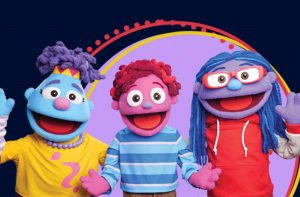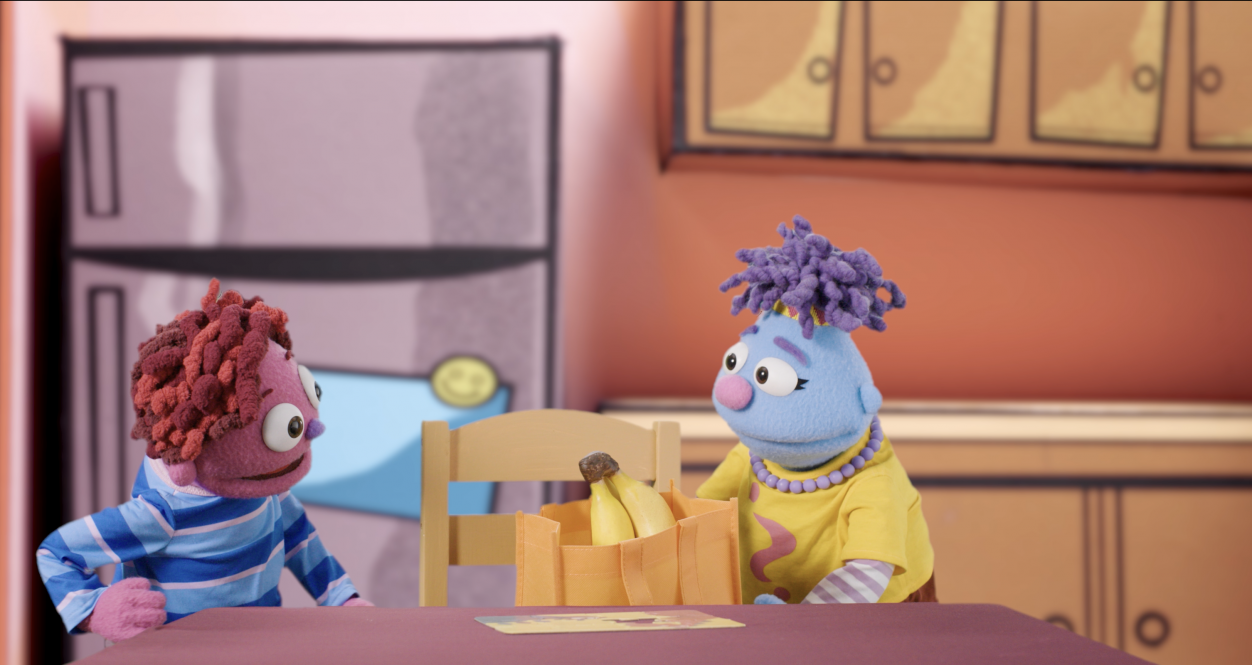It’s been less than a year since the team behind “Feel Your Best Self” (FYBS) filmed their first series of videos for free classroom and home use. The vision was simple: to equip kids and their caregivers with coping skills for “things that feel yucky,” says Sandra M. Chafouleas, FYBS’s cofounder and Board of Trustees Distinguished Professor of educational psychology.
Now, thanks to a new partnership with The WNET Group, home of New York’s THIRTEEN — America’s flagship PBS station — more kids around the world will be able to engage with FYBS. THIRTEEN PBS has added FYBS video content to its weekday program Let’s Learn, a series for kids ages 3-7 dedicated to making learning fun. The episodes featuring FYBS will begin airing on television in early June and are currently live on the Let’s Learn website, free for parents, daycare providers, and educators to stream at any time.
FYBS was born from a need for simple and accessible supplements to support social and emotional skills — a need which the COVID-19 pandemic laid bare. At the height of the pandemic, Chafouleas recalls, educators and families were under “so much stress,” especially concerning physical mitigation of disease risk.
“But I’m a psychologist by training. So, our team was also asking ourselves, what is the emotional toll?” Chafouleas says. “We had a youth mental health problem before the pandemic, but it was kind of like opening Pandora’s box on what was being experienced. And when schools reopened, we knew that something simple and fun was needed to address emotion coping.”
The program’s stars, CJ, Nico, and Mena, were up for the challenge — thanks to collaboration with the Ballard Institute and Museum of Puppetry. Emily Wicks, FYBS cofounder and manager of operations and collections at the Ballard Institute, helped harness the talent of puppetry arts students and alumni to bring the FYBS vision to reality.
In the FYBS toolkit (which is available for free online), the friendly puppets give life to emotion coping techniques like belly breathing, mindfulness, and connecting with others. The complete toolkit features videos of the puppets teaching these skills; strategy cards for each exercise; reflection sheets; facilitator guides; and a puppet-making workshop so kids can follow along with their own characters.

Kid-facing materials are available in English and Spanish. According to Wicks, the program has received web traffic from countries around the world, with the United States, Canada, the United Kingdom, and Mexico comprising the largest audiences.
Since the FYBS toolkit went live, the response has been overwhelming. The program was featured on NPR Morning Edition in November 2022; this year, the team took home a Kidscreen award for “Best Web/App Series—Original” and four honors in the Telly Awards.
More recently, FYBS was highlighted in a piece on Edutopia, a major resource and news hub for K-12 teachers owned and operated by the George Lucas Educational Foundation. The published content includes a video and accompanying article showcasing the FYBS curriculum in action, in the expert hands of educators at Natchaug Elementary School in Willimantic.
“When I first got here … there was a real focus on academic achievement, and on closing the gap, but there wasn’t really a focus on social/emotional wellness,” says Eben Jones, the school’s principal, in the Edutopia video. “Many students in our community have experienced some kind of trauma, and I think everybody benefits from understanding this role that your own emotional intelligence can play in your ability to learn.”
As FYBS continues to expand, the team is fine-tuning and adapting the program based on user feedback gathered by Emily Iovino, FYBS implementation coordinator.
The effort is a true cross-disciplinary collaboration at UConn, designed to captivate young minds and soothe big feelings. It takes “my world of the science of emotional regulation strategies,” says Chafouleas, and “merges that with the world of puppetry to engage creativity and imaginations and interest. FYBS is so much fun — across all ages, it sucks you right in.”



